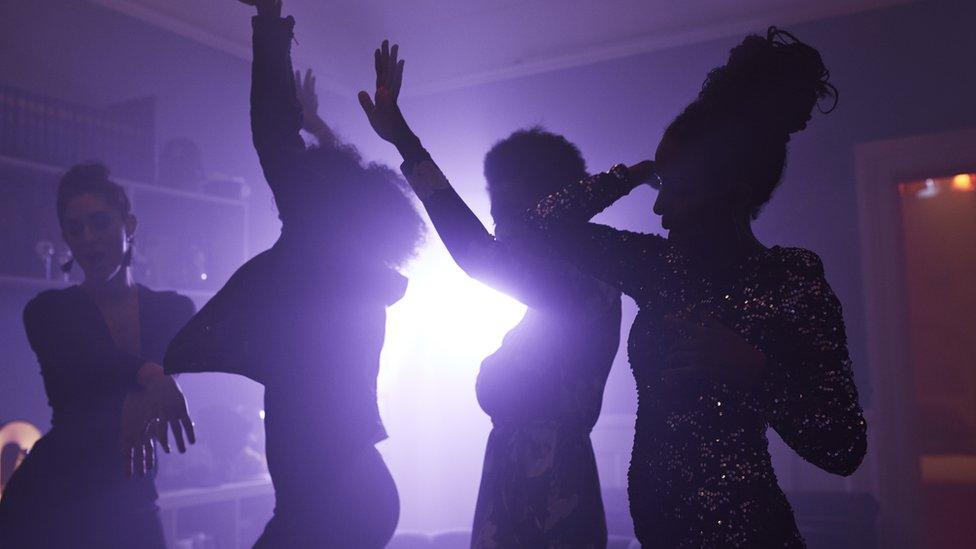Drink spiking: Police 'gaslit' me, says woman
- Published
Robyn says she went from having a few drinks to being dragged to the toilet
A woman who said she had her drink spiked in a pub felt "gaslighted" by police officers after trying to find a way to verify it.
Robyn, 26, blacked out after just a few drinks with friends in Caerphilly county and said she was "sent round in circles" trying to be taken seriously.
It comes as a boycott of clubs in some cities will take place, including Cardiff, on 29 October.
Gwent Police said anyone dissatisfied with their service could contact them.
Ch Supt Mark Hobrough added: "Across the organisation, officers and staff are committed to providing a high quality of service to all those they come into contact with."
'I had no clue what happened'
Robyn was out when she said she "just blacked out" after only having a few drinks.
She has no recollection of her fiancée picking her up and was told the next morning she was "a mess", having collapsed on the floor.
She said she knew she had been spiked and called 101 and 111.
She was sent to A&E, where she was told they could not perform the test.
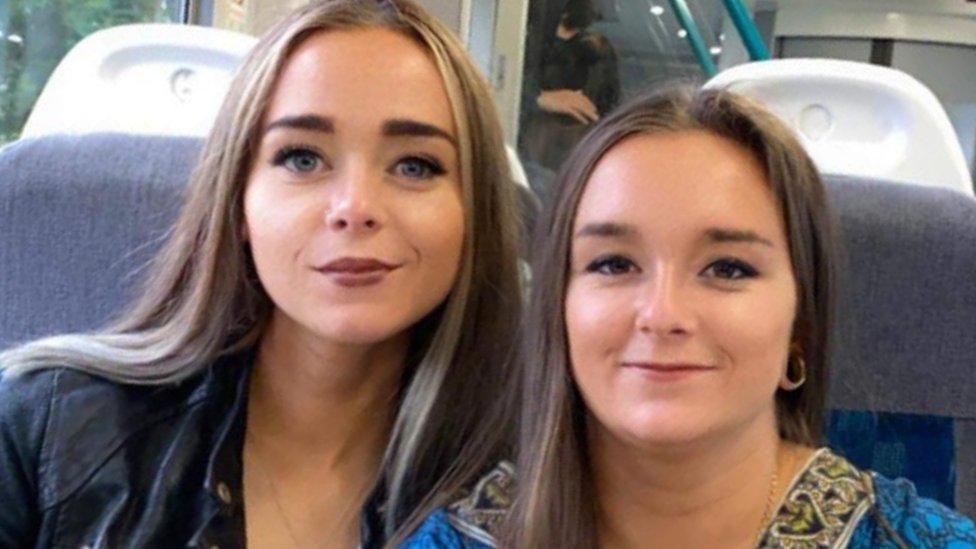
Robyn's fiancée (left) picked her up from the pub and thought she was drunk because of the way she was acting
She then contacted the police again and said she was "treated like a criminal" and described the experience as "just awful".
She felt officers were "accusatory" towards her for drinking and said the "mental gymnastics" she went through "took its toll".
Gaslighting is defined as manipulating someone into thinking they are wrong even when they are right.
Police closed the case as "no offences were identified".
Tests can be done to see if drugs are in a person's system, but it needs to be within 12 to 72 hours.
Robyn said the processes were not there to allow this and even though she "pushed hard", she would be put off reporting again as she does not think it is taken seriously.
She said: "It happened in a place I really did not expect it to happen and that is what scared me.
"It isn't about me, it is about other people and I feel really worried for women who have got to go through the same thing.
"They don't seem to take it seriously unless something really bad has happened, but people getting spiked against their will is bad in itself.
"There needs to be intervention to stop something worse happening."
A campaign in Cardiff called Girls' Night In is encouraging people to boycott clubs in order to have drink spiking taken more seriously.
Similar events are also happening in Leeds, Edinburgh and Nottingham.
Organiser Sophie - not her real name - said the Instagram page got daily messages of people's experiences being spiked and the support was "overwhelming".
The stories vary from being safely taken home by friends to being injected with needles or sexually assaulted, she said.
"It's all well and good telling people it's not good enough but actually doing something to make clubs change is something else.
"As victims I don't think you should be expected to protect yourselves."
She added that training needs to implemented in bars "so it can be spotted", as well as tests and bottle caps being available in every bar as a temporary measure.
'I could have died'
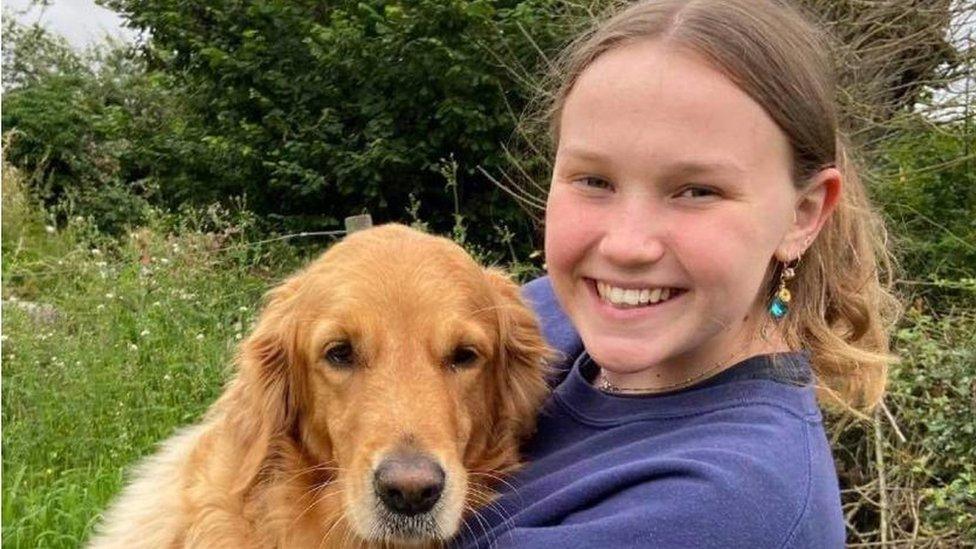
Katie Snaith said she lost control of her body and was worried what reaction spiking could have had with her anti-depressants
Katie Snaith, 20, is a second year history student at Cardiff University.
When she had her drink spiked, she "blacked out" for the whole night and lost control of her body, becoming "violently ill".
She reported it to the police and students' union the next day but said she was told not much could come of it as she did not take a test.
Katie takes anti-depressants and said people on medication could be given something that could kill them.
She said: "I'm always very careful, so I think my friends were a bit confused as to why I was behaving in a way they've never seen me like before.
"It's not my fault I'm on medication and it's not my fault that I got spiked but you then kind of internalise it and feel like it was your mistake and think 'I should have done more, this, that or the other'.
"I think it's quite scary. You're always taught to be safe but even within your own union, with students who study at same place as you, you're not safe with them.
"It's hard to feel safe anywhere."
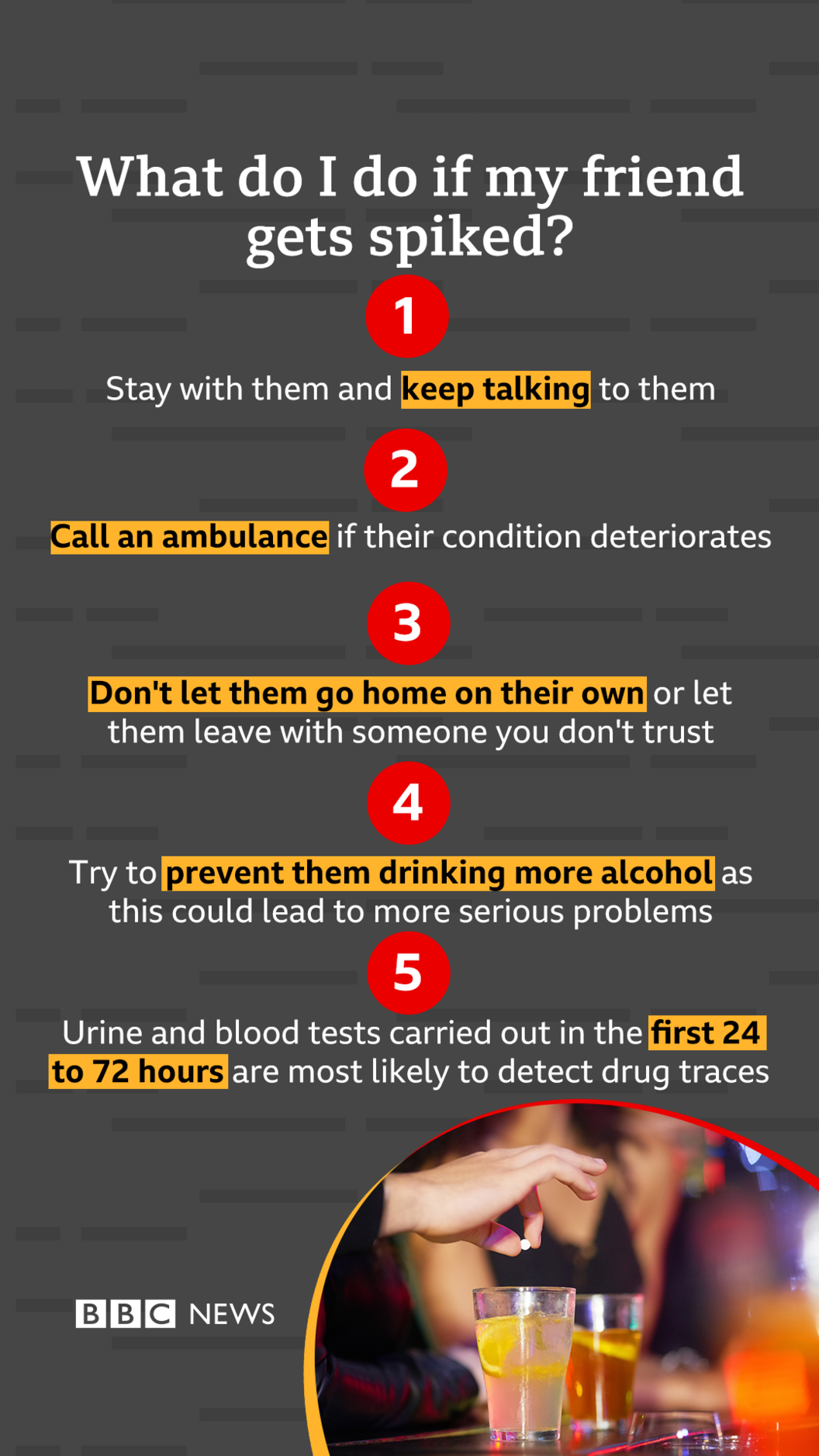
Source: Drinkaware

Figures obtained by the BBC in 2019 revealed a rise in recorded cases of drink spiking, with more than 2,600 reported incidents in England and Wales since 2015.
Helena Conibear, CEO of the Alcohol Education Trust, external, said the reported numbers were not reflective as many people did not report it or even know they have been spiked.
She said spiking happened at festivals or house parties, which meant it was not always strangers that people need to be wary of.
Lat week, the charity opened a survey and had almost 800 responses in five days.
Out of the respondents, 16% of women, 8% of men and 17% of people identifying as other said they had been spiked.
Of these, 91% did not report it to police, which Ms Conibear said could be down to embarrassment or fear of not being believed.
Ms Conibear said: "This is not something that is not funny or a joke. It can be life changing for the person who's been spiked."
She said it was important to report it as quickly as possible to prevent it happening to others.

YOUNG WELSH AND BOSSIN' IT: Meet the young, Welsh entrepreneurs who've been bossin' it through lockdown
WHEN NUDES ARE STOLEN: Former glamour model Jess Davies uncovers the hidden trade in nude photographs

- Published7 January 2020

- Published20 October 2021
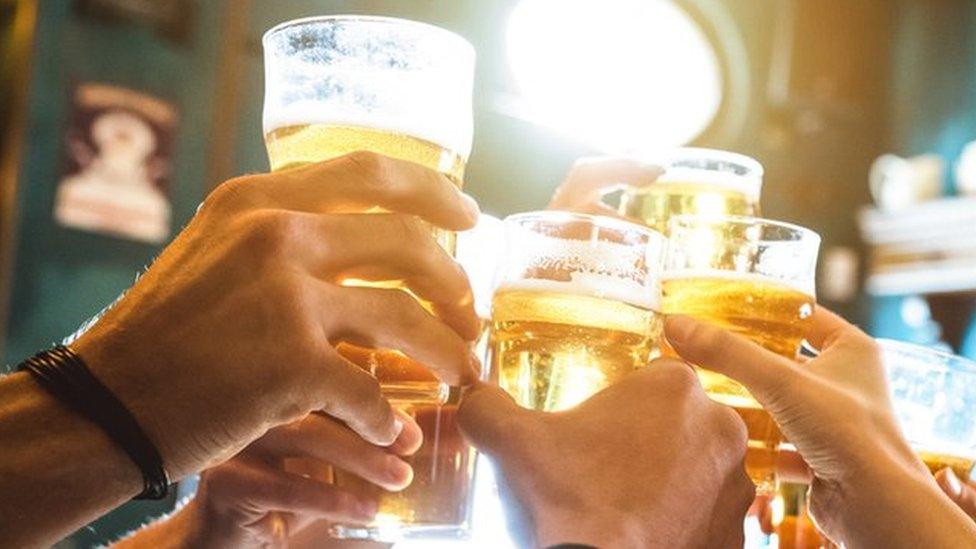
- Published15 October 2021
